Naproxen Oral Pill
$5.49
Common Brand Name(s): ALEVE, WAL-PROXEN, ANAPROX, NAPROSYN
Manufactured
Strength : 220 mg Tab 50 CT
Unit : EACH 50 CT
Introduction
Naproxen is used to relieve mild to moderate pain from various conditions. It also reduces pain, swelling, and joint stiffness from arthritis. This medication is known as a nonsteroidal anti-inflammatory drug (NSAID). It works by blocking your body’s production of certain natural substances that cause inflammation. If you are treating a chronic condition such as arthritis, ask your doctor about non-drug treatments and/or using other medications to treat your pain. See also Warning section. This form of naproxen is absorbed slowly and should not be used for pain that needs quick relief (such as during a gout attack). Ask your doctor or pharmacist about using a different form of this drug or other medications for quick relief of pain. See also Warning section. Naproxen is used to relieve pain from various conditions such as headache, muscle aches, tendonitis, dental pain, and menstrual cramps. It also reduces pain, swelling, and joint stiffness caused by arthritis, bursitis, and gout attacks. This medication is known as a nonsteroidal anti-inflammatory drug (NSAID). It works by blocking your body’s production of certain natural substances that cause inflammation. If you are treating a chronic condition such as arthritis, ask your doctor about non-drug treatments and/or using other medications to treat your pain. Check the ingredients on the label even if you have used the product before. The manufacturer may have changed the ingredients. Also, products with similar names may contain different ingredients meant for different purposes. Taking the wrong product could harm you.
Side Effects of Naproxen Oral Pill
See also Warning section. Upset stomach, nausea, heartburn, headache, drowsiness, or dizziness may occur. If any of these effects last or get worse, tell your doctor or pharmacist promptly. If your doctor has directed you to use this medication, remember that he or she has judged that the benefit to you is greater than the risk of side effects. Many people using this medication do not have serious side effects. This medication may raise your blood pressure. Check your blood pressure regularly and tell your doctor if the results are high. Tell your doctor right away if you have any serious side effects, including: easy bruising/bleeding, difficult/painful swallowing, hearing changes (such as ringing in the ears), mental/mood changes, signs of kidney problems (such as change in the amount of urine), unexplained stiff neck, vision changes, symptoms of heart failure (such as swelling ankles/feet, unusual tiredness, unusual/sudden weight gain). This drug may rarely cause serious (possibly fatal) liver disease. Get medical help right away if you have any symptoms of liver damage, including: nausea/vomiting that doesn’t stop, loss of appetite, stomach/abdominal pain, yellowing eyes/skin, dark urine. A very serious allergic reaction to this drug is rare. However, get medical help right away if you notice any symptoms of a serious allergic reaction, including: rash, itching/swelling (especially of the face/tongue/throat), severe dizziness, trouble breathing. This is not a complete list of possible side effects. If you notice other effects not listed above, contact your doctor or pharmacist. In the US – Call your doctor for medical advice about side effects. You may report side effects to FDA at 1-800-FDA-1088 or at www.fda.gov/medwatch. See also Warning section. Upset stomach, nausea, heartburn, headache, drowsiness, or dizziness may occur. If any of these effects persist or worsen, tell your doctor or pharmacist promptly. Remember that your doctor has prescribed this medication because he or she has judged that the benefit to you is greater than the risk of side effects. Many people using this medication do not have serious side effects. This medication may raise your blood pressure. Check your blood pressure regularly and tell your doctor if the results are high. Tell your doctor right away if you have any serious side effects, including: easy bruising/bleeding, difficult/painful swallowing, hearing changes (such as ringing in the ears), mental/mood changes, signs of kidney problems (such as change in the amount of urine), unexplained stiff neck, vision changes, symptoms of heart failure (such as swelling ankles/feet, unusual tiredness, unusual/sudden weight gain). This drug may rarely cause serious (possibly fatal) liver disease. Get medical help right away if you have any symptoms of liver damage, including: dark urine, persistent nausea/vomiting/loss of appetite, stomach/abdominal pain, yellowing eyes/skin. A very serious allergic reaction to this drug is rare. However, get medical help right away if you notice any symptoms of a serious allergic reaction, including: rash, itching/swelling (especially of the face/tongue/throat), severe dizziness, trouble breathing. This is not a complete list of possible side effects. If you notice other effects not listed above, contact your doctor or pharmacist. In the US – Call your doctor for medical advice about side effects. You may report side effects to FDA at 1-800-FDA-1088 or at www.fda.gov/medwatch.
Product Purchase : $5.49 / EACH 50 CT
Be the first to review “Naproxen Oral Pill” Cancel reply
Related products
GENERIC OTC
GENERIC OTC
GENERIC OTC
GENERIC OTC
GENERIC OTC
GENERIC OTC
GENERIC OTC
GENERIC OTC



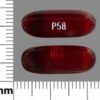

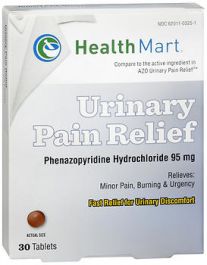




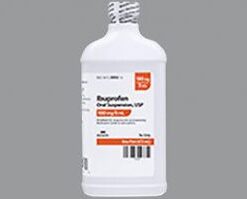
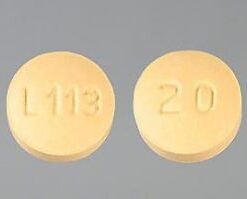
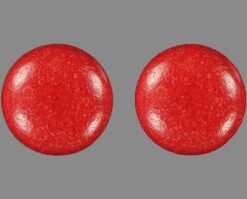
3 reviews for Naproxen Oral Pill
There are no reviews yet.